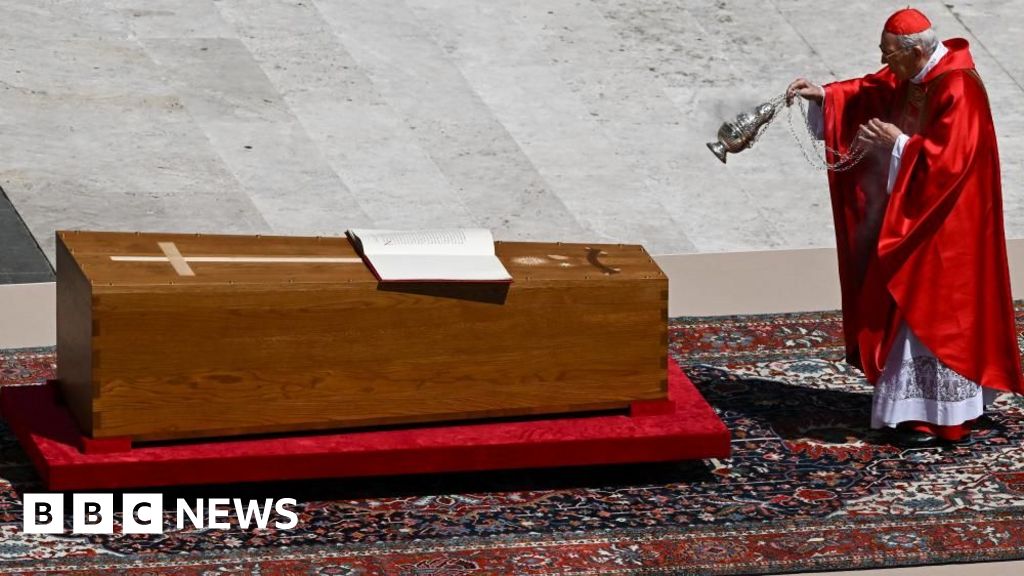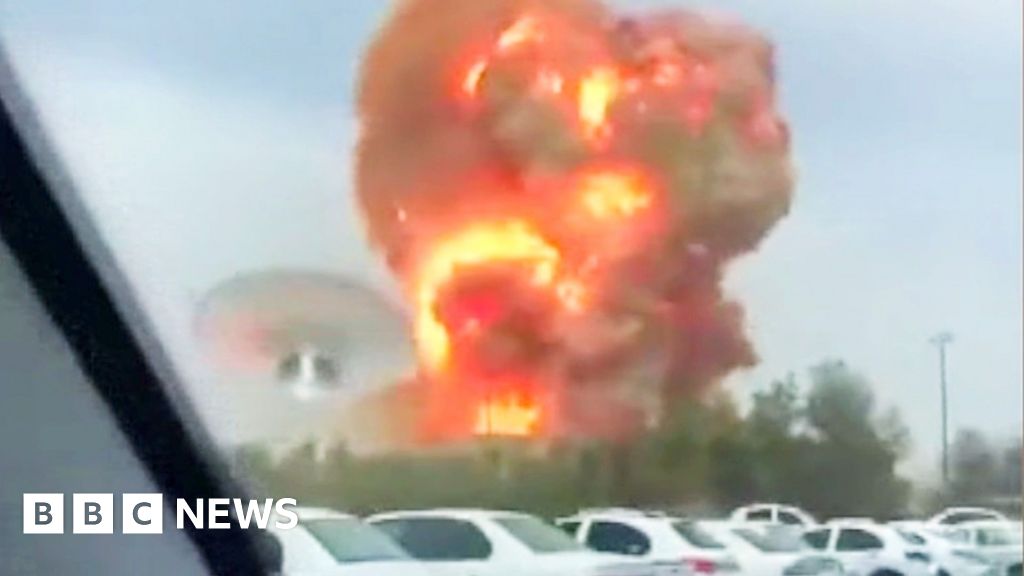ARTICLE AD BOX
Image source, AFP via Getty
Security forces in Kazakhstan say they have killed dozens of protesters in the main city, Almaty, to quell massive riots.
Some 13 security officers have been killed, with hundreds more wounded in the unrest.
The protests followed a hike in the price of fuel.
Where is Kazakhstan and what kind of country is it?
Kazakhstan is a huge country, the size of Western Europe, situated in Central Asia and bordering Russia and China.
Made up mostly of mountains and arid steppe land, it has a population of only 19 million people.
It gained independence in 1991, following the collapse of the Soviet Union.
The country has some of the largest oil reserves in the world. It produces 1.6 million barrels of oil a day and has attracted billions of dollars in foreign investment.
However, the wealth has not trickled down to the population, who have an average income of less than £2,500 a year.
For 18 years, Kazakhstan was ruled by President Nursultan Nazarbayev - a former Communist Party politburo member with strong links to Russian President Vladimir Putin. Statues of Mr Nazarbayev were erected and he built a new capital, Astana, which was later renamed Nur-Sultan in his honour.
He stood down in 2019, making way for current President Kassym-Jomart Tokayev.
Public protests in Kazakhstan are illegal without a government permit, and previous strikes and demonstrations have been dealt with very harshly.
What has happened in Kazakhstan?
Demonstrations started on 2 January in the town of Zhanaozen, an oil hub and the site of deadly clashes between protesters and police 11 years ago.
Protests then spread across the rest of the country.
The security forces say they killed rioters in Almaty while trying to restore order. Police say protesters tried to take control of police stations in the city.
At least 12 members of the security forces have been killed and 353 injured, according to police.
Nationwide, about 1,000 people have reportedly been injured in the unrest, with 400 being treated in hospital and dozens in intensive care.
Why did the riots start?
The protests began when the government lifted its price cap on liquefied petroleum gas (LPG).
Many Kazakhs converted their cars to use LPG because it was cheaper than other fuel.
However, the government said it could not afford to continue subsidising LPG and its decision to remove the cap virtually doubled its price.
Image source, Tass via Getty
Image caption,A statue of former leader Nursultan Nazarbayev
However, the rioters appear to have other grievances. Some chanted the name of Mr Nazarbayev and tried to tear down a bronze statue of him.
After stepping down as president, Mr Nazarbayev continued to hold a strong position in government as head of Kazakhstan's Security Council. He also appeared to be grooming his daughter Dariga as a future leader, according to observers.
How is Russia getting involved?
Russian paratroopers have been sent to Kazakhstan at the request of the Kazakh president to help "stabilise" the country.
They were sent under the authority of the Collective Security Treaty Organization (CSTO).
This is a group of countries comprising of Russia, Kazakhstan, Belarus, Tajikistan, Kyrgyzstan and Armenia, which was set up after the collapse of the Soviet Union.
The CSTO, which is currently chaired by Armenia, has blamed the trouble in Almaty on "an invasion of bandit formations trained from abroad".
What happens next?
Kazakhstan's government is making concessions.
It has put off removing its price cap on LPG - ordering the prices of all vehicle fuel to be regulated for six months.
Ministers have also resigned. President President Kassym-Jomart Tokayev said the government had failed to carry out "one of its main tasks - keeping inflation in check".
It will continue to carry out day-to-day duties until fresh elections have been held.
The United States urged Kazakh authorities to show "restraint", saying protesters should be able to "express themselves peacefully".

 3 years ago
106
3 years ago
106








 English (US) ·
English (US) ·